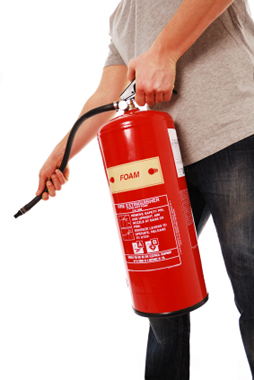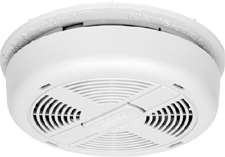

Family Run Local Business * Professional Service * Competitive Prices * Quality Assured





Copyright © Fire & Electrical Solutions Ltd -
Website Design by Happy Websites
“We pride ourselves on our Competitive Prices and Professional Service”

Fire Protection & Safety

Here is some useful information and articles about Fire Safety.
Domestic smoke alarms
According to the latest UK figures over three quarters of all fire casualties occur in the home.
Every year around 450 people die in fires in the UK with 13000 injuries. Fortunately this number is slowly reducing due to the fact professional use of smoke alarms are being installed in the home.
Smoke alarm reliability

Fire Safety Guides
There are a number of Fire Safety Guides produced for the Communities and Local Government Website.
We have created direct links to the various guides below. You can also visit the Fire Safety Guide section of the Communities and Local Government Website by clicking on the link below.
Communities and Local Government Website
You can view any of the Fire Safety Guides by clicking on the links below:

Legislative Overview -
This Order is the Primary Legislation regarding fire safety and replaces the Fire Precautions Act 1971 and the Fire Precautions (Workplace) Regulations 1996, both of which have been replaced when the order came into force on 1st October 2006.
The Order applies to any place, with few exemptions, these are;
1.Domestic premises
2.Offshore installations.
3.A ship (normal ship-
4.Fields, woods, agricultural land and forestry.
5.Aircraft, locomotive, rolling stock, trailer or semi-
6.Mines
7.Borehole Sites.
The responsibility for ensuring the Order is complied with rests with: -
-
-
In the majority of premises it will be fairly obvious who the responsible person
is, however there will be premises where the responsibility for fire safety rests
with a number of persons. For example where buildings are occupied by a number of
different businesses the responsible persons must co-
The order makes it clear that fire safety is not just the remit of the responsible
person, all employees have a duty to co-
Main Requirements
The responsible person must consider the fire safety provisions and the safety of
all relevant persons with particular attention to those with special needs, young
persons and those not familiar with the building. In order to do this he or she must:-
•Carry out a fire safety risk assessment that considers not only his/her premises but also any relevant persons in the vicinity who could be affected by a fire.
•The responsible person must appoint one or more competent persons to assist with fire safety. Where there is a competent person(s) in his or her employment these should be appointed in preference to a person not in their employment.
•Take steps to reduce the risk of a fire occurring. However, should a fire occur then to reduce the chance of it spreading.
•Provide general fire precautions and policy and create an emergency plan.
•Implement any special measures and precautions that are necessary especially regarding dangerous and or flammable substances.
•Establish a suitable means of contacting the emergency services and informing them of relevant information regarding those dangerous substances.
•Consult with employees and or their representatives regarding fire safety.
•Ensure that employees receive adequate training regarding fire safety. Inform them with clear and relevant information on any risks to them identified by the risk assessment and how they will be protected in the event a fire occurs.
•Inform all non-
•Take special measures regarding the employment of young persons and inform their
parents or guardians about the risks and measures that have been taken. Ensure that
fire safety measures are maintained, (fire alarm, emergency lighting, fire-
•Record the significant findings of the assessment and prepare an action plan (prioritised) for dealing with those findings and if necessary implement temporary measures to deal with any findings that require immediate attention.
•Monitor the effectiveness of the fire safety arrangements.
•Review the assessment periodically, after structural and managerial changes, after changes in work practice or the introduction of new processes or machinery.


Fire statistics for 2003 stated that smoke detectors in the home failed to operate in 12% of cases. However this overall figure masks a wide difference in performance between battery powered alarms and mains powered alarms. 40% of all battery powered smoke alarms failed to operate. The main reason for this was due to missing or flat batteries.
So the message is clear it is vital to select properly, install and adequately maintain the smoke alarm.
Maintaining your smoke alarm
- Once a week check the battery
- Twice a year run a vacuum over the smoke sensor to remove any dust to prevent false alarms
- If a ten year battery is fitted record date in diary when new battery is required

Fire Safety Log Book
Our Fire Safety Log Book contains useful advice on preventing fires and all about maintaining and monitoring your fire prevention systems along with useful charts for recording fire prevention activities.
You can download the Fire Safety Log Book by clicking on the link below:-





